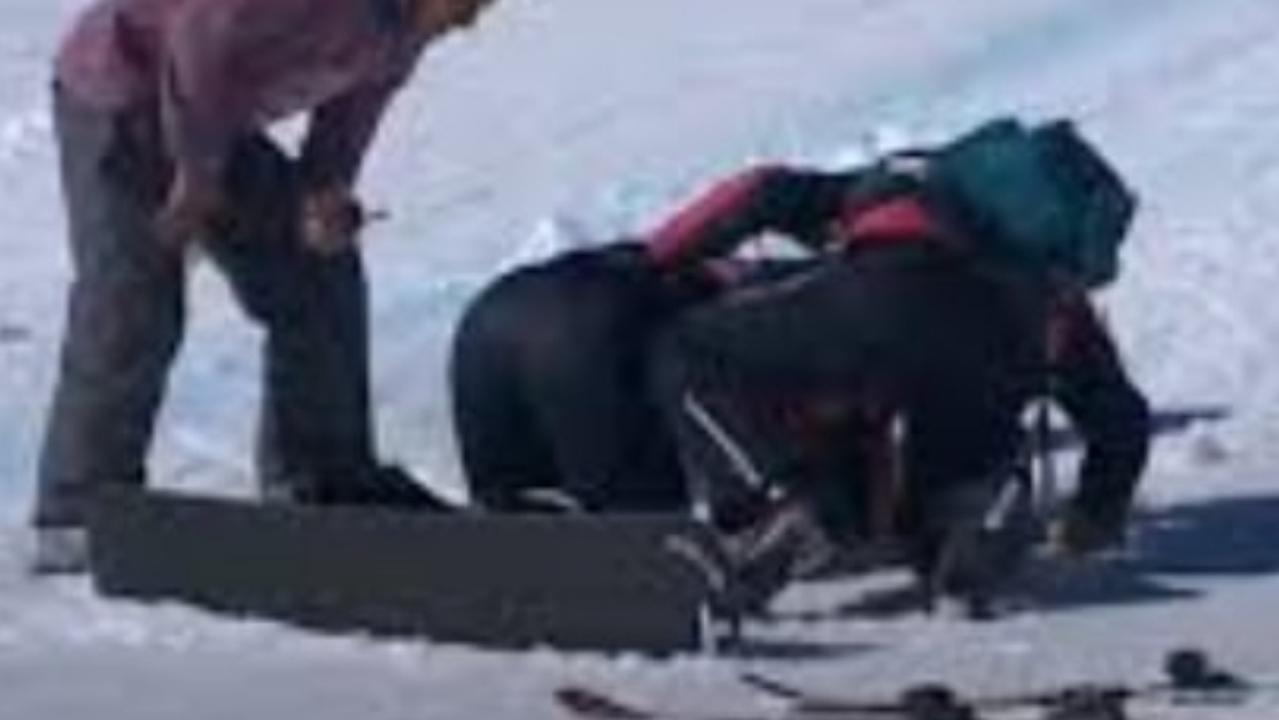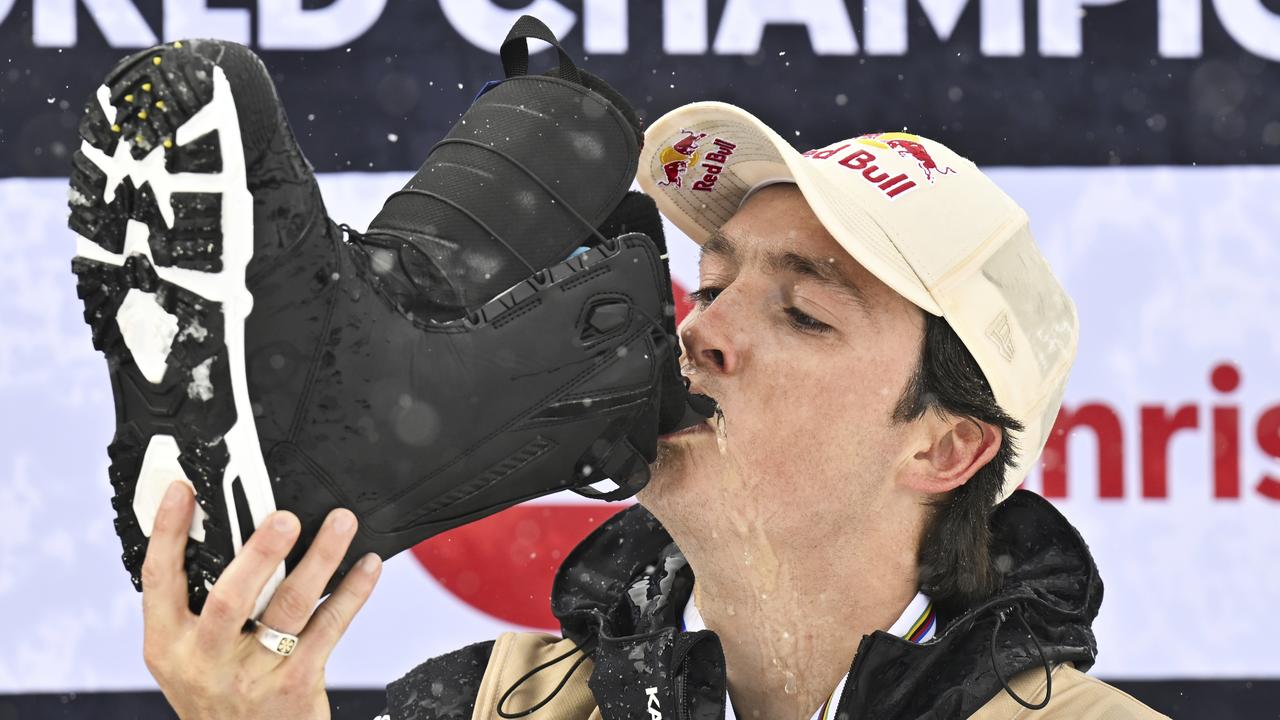Australian ice skating in crisis after unmasking of sport’s ‘sick and twisted’ toxic culture
As more athletes share their lived trauma, JULIAN LINDEN and DAVID RICCIO unmask ice skating’s toxic culture where the cries for outside help are getting louder.
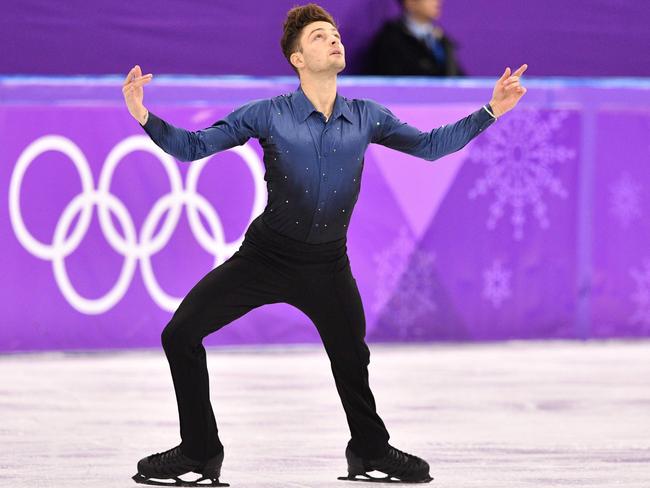
Winter Olympics
Don't miss out on the headlines from Winter Olympics. Followed categories will be added to My News.
Almost four years on, Australian ice skating still doesn’t seem to have learnt anything from the controversy surrounding the tragic death of Katia Alexandrovskaya.
Instead of addressing the sport’s dirty secrets after Alexandrovskaya took her own life in July 2020, Australian ice skating is spiralling from crisis to crisis.
The latest revelation to shake the sport is the news Australia’s triple Olympic figure skater Brendan Kerry was banned for life in the United States after being accused of sexual misconduct.
Kerry, who carried the Australian flag at the Beijing Winter Olympics, maintains he is innocent of the charges and plans to appeal, but the publicity around his case has reopened some deep wounds in Australian ice skating.
Separate to the Kerry allegations, the sport is dealing with claims of sexual assault, death threats, bullying, intimidation and some regulatory bodies being run like cartels.
As part of an ongoing investigation into a sport normally renowned for grace and elegance, This masthead has heard shocking claims from a number of participants - including elite competitors, coaches, administrators and parents - that the sport is in desperate need of outside help.
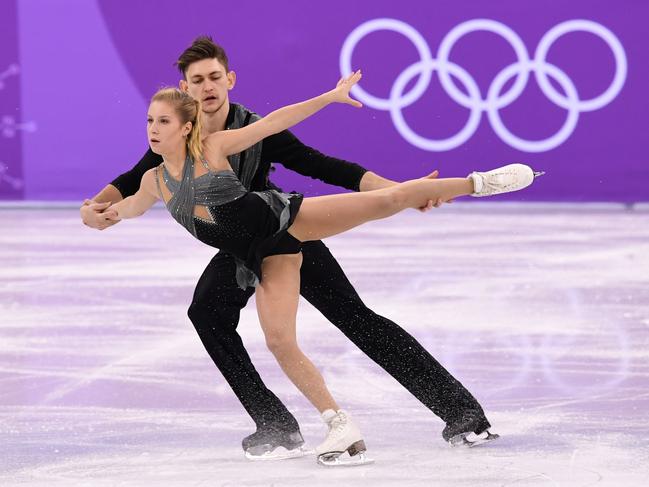
Fearing recriminations, most agreed to speak so long as their names were withheld, but some have gone public on their own accord, including former national junior champion James Min who has called on federal authorities to intervene to save more children from being abused after revealing he was the victim of adult grooming.
“This is a topic I’d rather not talk about, however in light of the recent news this is critical in protecting the safety of children in sport in Australia. For changes to be made, this needs to be discussed, acknowledged and brought to light. As uncomfortable and horrific these events are, it’s important that we start having these conversations and acknowledging the constant recurring issues,” Min wrote.
“If you think this doesn’t affect you, it does. Those who are staying silent and are associated with these sick and twisted individuals are just as bad. And trust me they know the stories and are aware of what is happening behind closed doors.
“I’m beyond sick and tired of nothing being done to protect the safety of children in this sport, and it’s about time changes are made. There have been too many incidents now. From the tragic passing of Katia to now this recent story.
“I myself am a victim of grooming by an adult. I will not name this individual due to legal reasons. However, I didn’t receive the support and protection I needed during this time. I spent a lot of my career as an athlete suffering internally and not being able to reach out to anyone.
“Or when I did reach out, no one could provide me with the help I needed. This isn’t about my story. This is about making a change in the way we handle and navigate the safety of athletes in Australia. The last thing I would want is for another athlete to have to go through what I went through and to suffer the way I did in silence.”
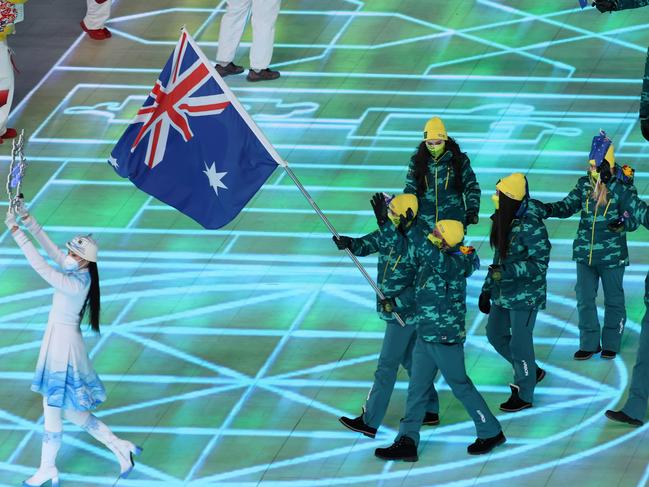
Min is not the only one unmasking the sport’s toxic culture.
Another Australian skater, Celeste Milner, has founded a campaign calling for changes to the way adult bullying in sports is investigated.
Currently dealt with by the sports themselves, the petition is asking the federal government to broaden the scope of Sport Integrity Australia’s (SIA)
responsibilities to investigate anyone who has been bullied, regardless of their age.
“My experiences feeling unsafe in the sport of figure skating in Australia have opened up conversations with many other adult athletes from many different sports around Australia and the world, who also feel voiceless, trapped in situations involving bullying and other issues that severely impact their mental and physical health,” Milner wrote.
More than 800 people have already signed the petition.
Ice Skating Australia (ISA) declined to answer any emails or phone calls about the sport’s latest problems, but did send a confidential notice to its members, obtained by this masthead, urging them to refer any child abuse matters to the appropriate authorities.
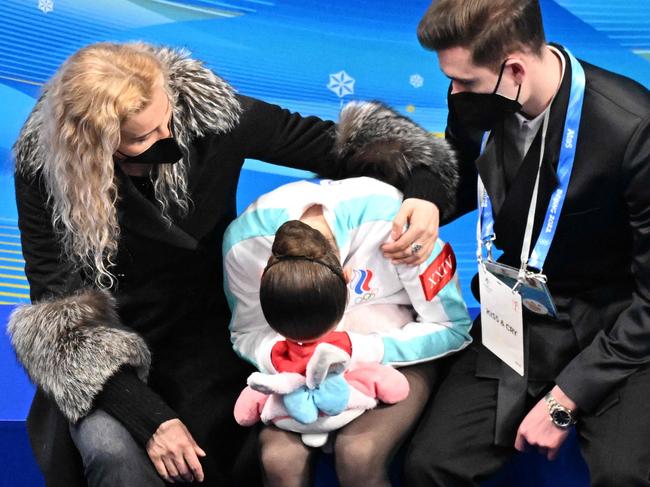
“Sport Integrity Australia can receive information and concerns that relate to unacceptable treatment of children and young people in sport,” the letter said.
“This includes behaviour such as inappropriate use of tone and language, harsh training methods, bullying or harassment of children/young people, and other harmful behaviours.”
For many participants in skating, the disturbing claims about widespread abuse and bullying are old news that have long been swept under the carpet.
A number of people said they had major reservations about the concentration of power in the sport.
According to several informants, it’s the worst-kept secret in the sport that anyone who dares cross swords with certain people will pay a hefty price, or as one whistleblower put it: ”they can kiss their job goodbye.”
Separate to these allegations, the Kerry controversy has already had an impact at the local level.
Kerry’s mother, Monica MacDonald, was the long time director of coaching at Macquarie and the ISA until news of her son’s sexual misconduct ban broke.
Vowing to stand by her son, MacDonald, a former Olympian herself and director of Macquarie Ice Rink, expected to keep her regular day job at Macquarie but was suspended, without pay, along with her husband John Dunn, who was the venue manager.
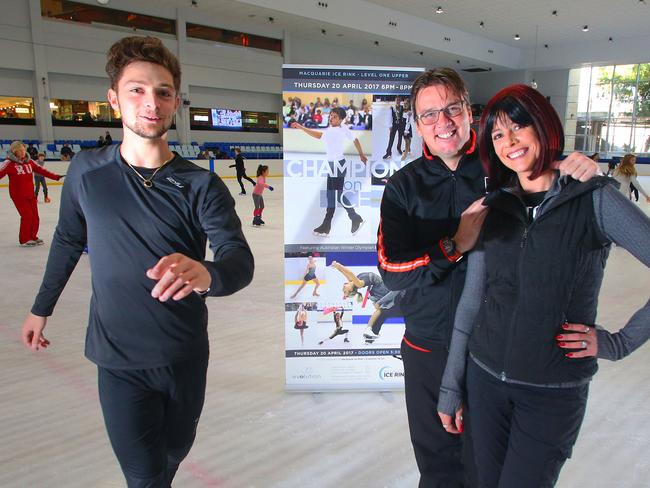
The rink’s wealthy owner Dr Frank Gregg, is understood to be concerned he was not informed about Kerry’s case, which had been under investigation for more than three years by the US Centre for SafeSport, which has no jurisdiction outside American borders.
While SafeSport has not released any details about the case, American media giant ESPN did, revealing two young American women had filed complaints. Kerry continues to fight the claims.
Gracie Gold, one of America’s best-known skaters who won a bronze medal at the 2014 Sochi Winter Olympics, told ESPN she was one of the alleged victims named in the report, but was not a minor at the time of her interaction with Kerry.
According to American media, Kerry told SafeSport investigators that his sexual intercourse with Gold was consensual.
According to ESPN, SafeSport also investigated claims that Kerry forced a second skater into non consensual sex at a party in 2016, but the report did not find sufficient evidence to substantiate the claim.
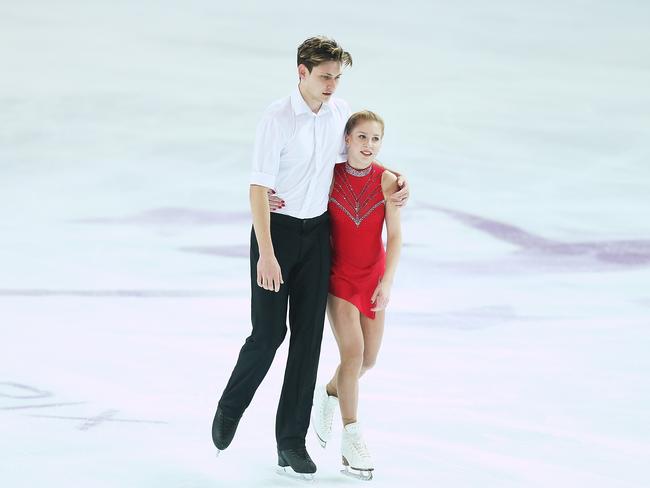
A number of skating participants have contacted this masthead saying they disagreed with the decision to suspend MacDonald over the allegations made against her son, while others said it was the right thing to do given the perception of a potential conflict of interest.
“The politics completely influence whether skaters will report an issue or not,” a relative of a current skater said.
“If your skater had a problem with Brendan, who would they even report it to?
“Your only choice is to suck it up or abandon the sport.”
MacDonald has denied showing favourable treatment to anyone in the sport.
“I’m a big one for avoiding conflicts of interest,” she said. “If we have a meeting and there’s something that’s a conflict, I’ll completely leave the room and wait till I hear screaming for me to return.”
Skating is not a cheap sport. Private lessons start at around $100 an hour, which doesn’t include the cost of equipment or access to the ice.
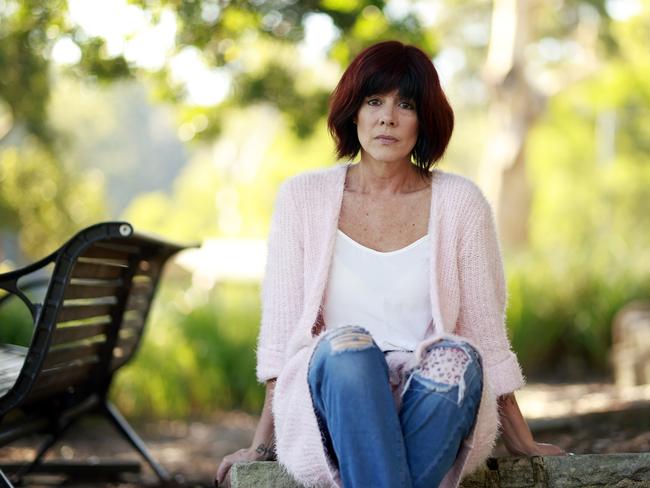
For competitive skaters, the annual costs can reach tens of thousands of dollars so most of the mums and dads who get involved rarely like to rattle cages.
The very best skaters receive direct funding and access to support services through the Olympic Winter Institute of Australia’s (OWIA) individual performance grant programs.
Australia’s current top pair, Anastasia Golubeva and Hektor Giotopoulos Moore, receive $80,000 from OWIA plus around $40,000 from ISA, which doesn’t get any government money because it is regarded as a non-funded National Sporting Organisation (NSO).
Because the OWIA is focused on high performance sport, it doesn’t have any say in how the ISA runs its affairs.
While ISA does not receive any funding from the Australian Sports Commission (ASC), it does need to meet a number of requirements to be classified as an NSO.
To remain an NSO, which enables it to remain affiliated with the international body, the ISA has to comply with an agreement with the ASC on a range of governance issues, such as constitutions, board charters, codes of conduct, strategic plans and annual reports.
The question everyone is asking now is whether the ISA is still compliant or needs an independent investigation.
Left to the ISA, critics argue it’s unlikely to happen. The ISA was scheduled to hold its annual general meeting in Perth on Saturday with the growing dissension in the sport not even listed on the agenda.
More Coverage
Originally published as Australian ice skating in crisis after unmasking of sport’s ‘sick and twisted’ toxic culture



